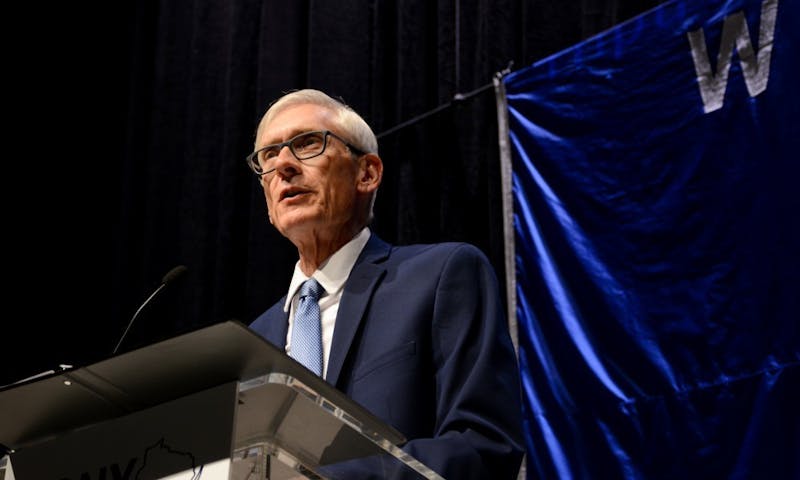
The new evers administration is reintroducing sustainability and climate change measures to Wisconsin policy, signifying a return to the state's historic environmental legacy.
Image By: Jacob Schellpfeffer
The new evers administration is reintroducing sustainability and climate change measures to Wisconsin policy, signifying a return to the state's historic environmental legacy.
Image By: Jacob SchellpfefferIn November of 2018, Wisconsin saw a massive turnout in the midterm elections, resulting in the election of Democratic Governor Tony Evers over Republican incumbent Scott Walker in the gubernatorial race. With just over 1 percent of the vote, Evers’ win was narrow. As he celebrated his victory, Evers promised Wisconsin residents “change is coming” — and change has certainly been seen in the field of environmental policy in just a few months since the election.
Wisconsin has historically been a key player in the the modern environmental movement. Beginning in the late 20th century, protection, appreciation and preservation of the environment became the focus of environmental policy. With the creation of the National Wilderness Preservation System in 1964 and the Wisconsin Environmental Policy Act in 1971, the importance of the environment has been a common theme of statewide policy-making, despite the frequent switch between liberal and conservative ideology in the Governor’s office.
However, the election of Scott Walker as governor in 2011 quickly sparked attacks against Wisconsin’s long-lasting environmental priorities.
Within his first year of governance, Walker cut the Department of Natural Resources’ budget by nearly 100 million dollars. He went on to align with the climate change-denying Heartland institute, barred state agencies from complying with Obama’s Clean Power Plan to reduce carbon emissions and substantially reduced the role of DNR administrators and scientists in decision-making by putting corporations’ interests at the forefront of his agenda.
Wisconsin was once the leader within the Midwest to set renewable energy standards. By the end of the Walker administration, there was only one state (of 29 total) to have a lower standard than Wisconsin.
Time and time again, Walker’s actions proved his inability to care for or protect the environment. Whether it was deleting information related to human-caused climate change on state agency websites or pledging a “No Climate Tax” — a flat opposition to any legislation that increases federal taxes to alleviate climate change — Walker’s interests laid within the pockets of business lobbyists.
Although Walker was never directly vocal on environmental issues, his actions spoke louder than words. He thoroughly neglected the urgent need for policy in mitigating climate change and creating a green environment for Wisconsin’s future generations. Walker’s governance dismantled Wisconsin’s historic environmental legacy by denying science and aligning with the interests of corporations.
The recent election of Evers, though, has fuelled a new era, symbolic of a return to Wisconsin’s environmental policy standards.
Throughout his campaign, Evers called for a variety of initiatives in environmental policy, immediately showcasing a stark contrast to the platform of Walker. For example, he promised to restore independence to the DNR, strengthen state incentives for renewable energy, support the Paris Climate Change Accords, increase investments in small/mid-scale solar and wind power, while also furthering research for renewable energy throughout the UW System.
Such wide-ranging policy proposals increases hope for the future of Wisconsin’s role in mitigating climate change and protecting the environment. However, it also sparks greater expectations for the current Evers administration.
Since his inauguration in January of this year, Evers has already taken steps to enact his climate plan. Although there was speculation as to what Evers could enact as Governor because of Republican majorities in the Wisconsin legislature, the administration has taken steps to restore environmental policies.
After declaring 2019 the “Year of Clean Drinking Water,” Evers has announced plans to replace lead pipes, allocate funds to the Southwest Wisconsin Geologic and Groundwater study, control polluted runoff and clean up areas surrounding the Milwaukee River and St.Louis River. These provisions estimate to more than $70 million, which the administration hopes will provide clean water to all Wisconsinites. By reaching across the aisle to his Republican lawmakers, Evers has put forth proposals with bipartisan support — an action not commonly witnessed in the past Walker administration.
Furthermore, the Evers administration has withdrawn Wisconsin from a multistate lawsuit challenging a federal rule to regulate air pollutants, such as mercury. The state has been dismissed from the action, as reported by Associated Press just this week. Evers and Attorney General Josh Kaul have both taken steps to retroactively reinstate Wisconsin as a leader in environmental policy through simple actions such as these.
Not only do these various actions and policies deliver on voters’ expectations to reverse environmental protections and policies, but they also represent the administration’s forthcoming agenda over these next few years. By immediately acting on campaign promises, Evers has demonstrated his commitment to putting the environment ahead of businesses and Republican majorities.
The environment, and the state’s contribution to its health, was neglected in the past eight years under Walker. But Evers has managed to return to Wisconsin’s historic environmental legacy in mere months, setting the stage for a shift in climate change conversation at a local level.